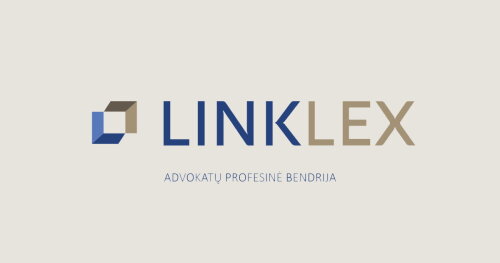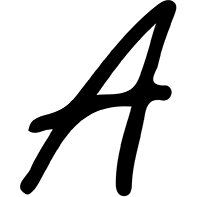Best International Trade Law Lawyers in Republic of Lithuania
Share your needs with us, get contacted by law firms.
Free. Takes 2 min.
Or refine your search by selecting a city:
List of the best lawyers in Republic of Lithuania
About International Trade Law in Republic of Lithuania
International Trade Law in Lithuania encompasses a range of legal frameworks and regulations that govern the trade of goods, services, and capital between Lithuania and other countries. As a member of the European Union, Lithuania adheres to EU trade policies, which influence many aspects of its international trade law. This body of law is designed to facilitate smooth transactions, ensure compliance with international standards, and protect national interests in the global market. With its strategic location, Lithuania serves as a significant trade hub in the Baltic region, making international trade law a vital field of legal practice.
Why You May Need a Lawyer
There are numerous situations where individuals and businesses might require legal expertise in international trade law:
- Contract Disputes: Resolving issues that arise from international trade agreements.
- Customs Issues: Navigating the complexities of customs duties and regulations.
- Compliance with Trade Regulations: Ensuring adherence to national and EU trade laws.
- Export-Import Transactions: Legal assistance in dealing with cross-border trade logistics and documentation.
- Intellectual Property Protection: Safeguarding intellectual property rights in international jurisdictions.
- Trade Financing: Guidance on securing and structuring financing for trade operations.
- Market Entry Strategies: Legal advice for entering new international markets.
Local Laws Overview
The Republic of Lithuania's approach to International Trade Law is shaped largely by its obligations and commitments under EU policies and international conventions. Here are key aspects relevant to this field:
- EU Directives: Lithuania abides by EU trade directives which aim for uniformity across member states.
- Customs Code: The Union Customs Code is the primary customs legislation impacting trade in Lithuania.
- Trade Agreements: Lithuania benefits from EU trade agreements with various countries worldwide.
- Competition Law: Strong focus on ensuring fair competition practices in trade.
- Data Protection: Adherence to the General Data Protection Regulation (GDPR) affects data handling in trade activities.
- Sanctions and Embargoes: Compliance with EU sanctions that may affect trade policies.
Frequently Asked Questions
What is the role of the EU customs code in Lithuania?
The EU customs code standardizes customs procedures across all member states, including Lithuania, facilitating a uniform process for imports and exports.
How does Lithuania handle trade disputes?
Trade disputes are typically addressed through negotiation and mediation, following EU and international guidelines. Legal recourse may be sought through courts or arbitration.
Are there specific export regulations in Lithuania?
Lithuania adheres to EU export regulations, which include compliance with international trade agreements and control of dual-use items.
What measures are in place to protect intellectual property in international trade?
Intellectual property protection in Lithuania is governed by EU regulations, offering robust protection under frameworks such as the European Patent Office and the EUIPO.
Which government body oversees international trade in Lithuania?
The Ministry of the Economy and Innovation oversees matters related to international trade policies and economic development in Lithuania.
What are Lithuania’s major trading partners?
Lithuania's major trading partners include countries within the EU, such as Germany and Poland, as well as non-EU countries like Russia and the United States.
Is legal advice necessary for compliance with international trade laws?
Yes, legal advice ensures that businesses comply with all relevant national and EU regulations, therefore preventing potential fines and legal disputes.
How does Lithuania ensure compliance with EU sanctions?
Compliance is ensured through legislation that aligns with EU foreign policy and sanctions, and enforced by relevant authorities.
What resources are available for businesses new to international trade in Lithuania?
Businesses can access resources and guidance from the Lithuanian Chamber of Commerce and the Ministry of Economy and Innovation.
How does Lithuania fare in terms of international trade competitiveness?
Lithuania is considered a competitive trade nation within the EU, bolstered by a strategic location, skilled workforce, and robust transportation infrastructure.
Additional Resources
- Lithuanian Customs Department: Offers guidance and information on customs procedures.
- Ministry of the Economy and Innovation: Provides resources on economic policies and trade agreements.
- Enterprise Lithuania: Aids businesses looking to expand into international markets.
- European Union Official Journal: Contains all legislative documents relevant to international trade within the EU.
Next Steps
If you require legal assistance in international trade law in Lithuania, it is advisable to:
- Consult with a lawyer specializing in international trade law to understand your legal obligations.
- Contact the Lithuanian Chamber of Commerce for networking opportunities and trade advice.
- Review EU and national trade regulations pertinent to your business activities.
- Engage with professional trade associations for industry-specific guidance and support.
Lawzana helps you find the best lawyers and law firms in Republic of Lithuania through a curated and pre-screened list of qualified legal professionals. Our platform offers rankings and detailed profiles of attorneys and law firms, allowing you to compare based on practice areas, including International Trade Law, experience, and client feedback.
Each profile includes a description of the firm's areas of practice, client reviews, team members and partners, year of establishment, spoken languages, office locations, contact information, social media presence, and any published articles or resources. Most firms on our platform speak English and are experienced in both local and international legal matters.
Get a quote from top-rated law firms in Republic of Lithuania — quickly, securely, and without unnecessary hassle.
Disclaimer:
The information provided on this page is for general informational purposes only and does not constitute legal advice. While we strive to ensure the accuracy and relevance of the content, legal information may change over time, and interpretations of the law can vary. You should always consult with a qualified legal professional for advice specific to your situation.
We disclaim all liability for actions taken or not taken based on the content of this page. If you believe any information is incorrect or outdated, please contact us, and we will review and update it where appropriate.
Browse international trade law law firms by city in Republic of Lithuania
Refine your search by selecting a city.















